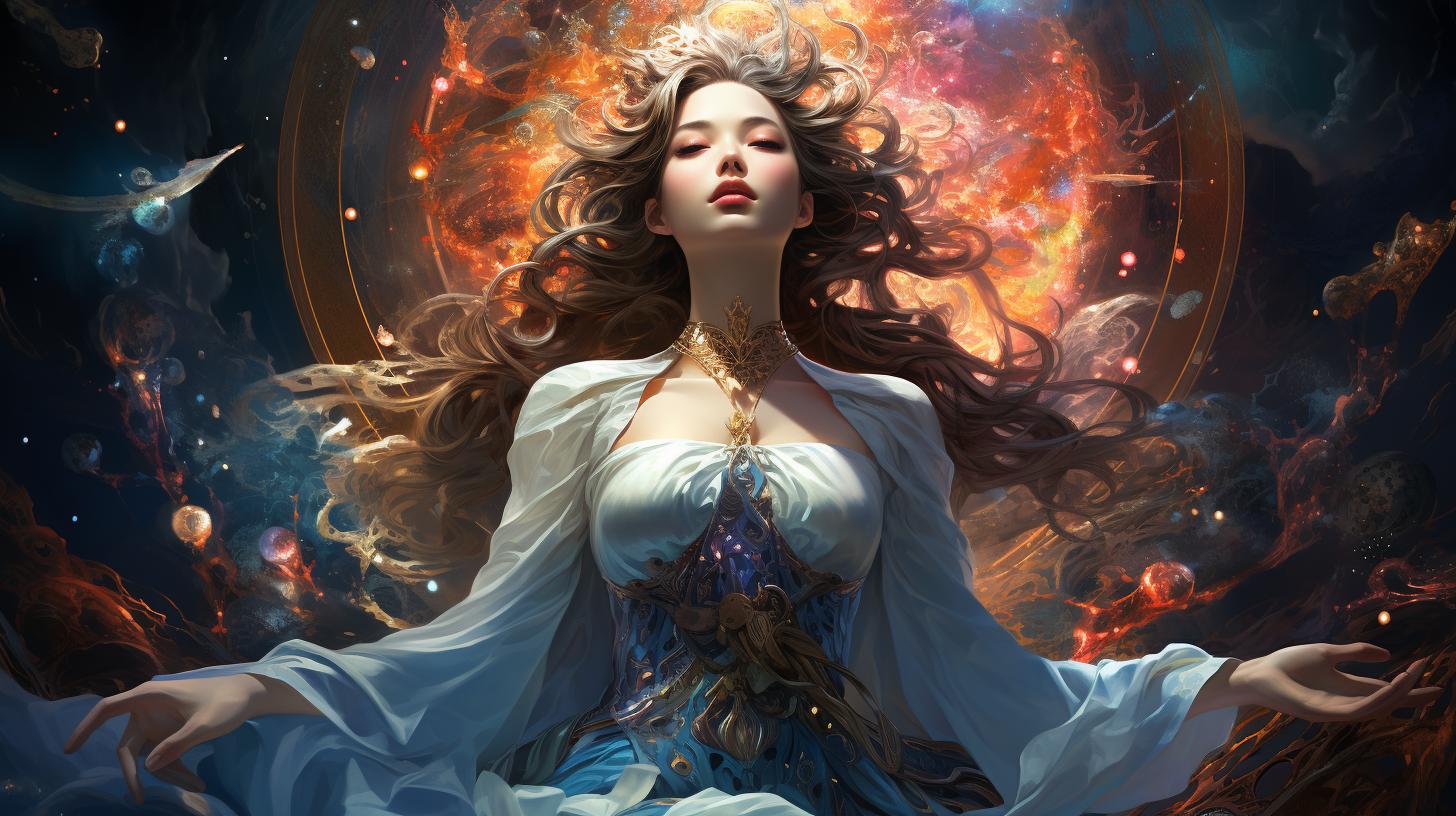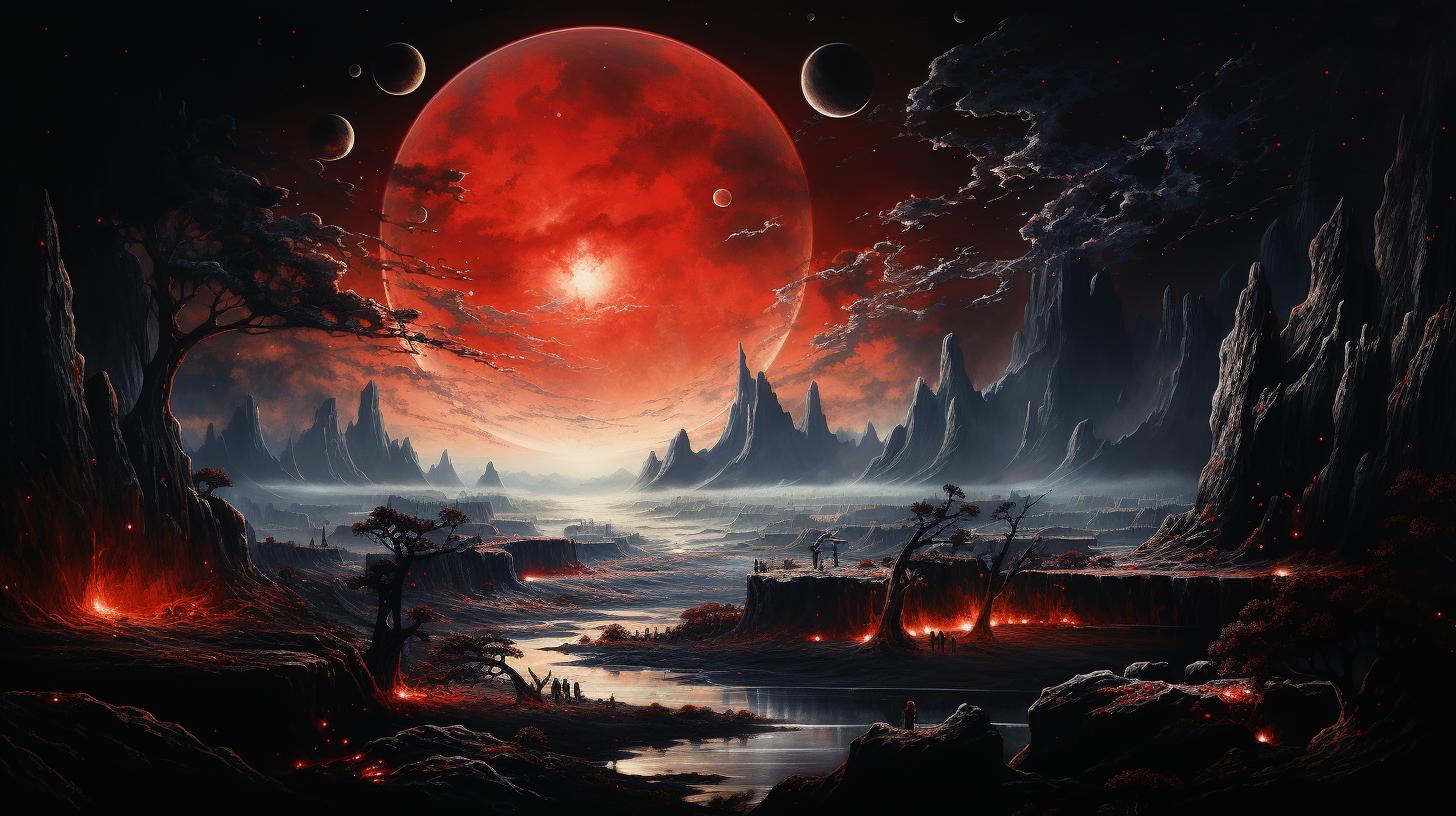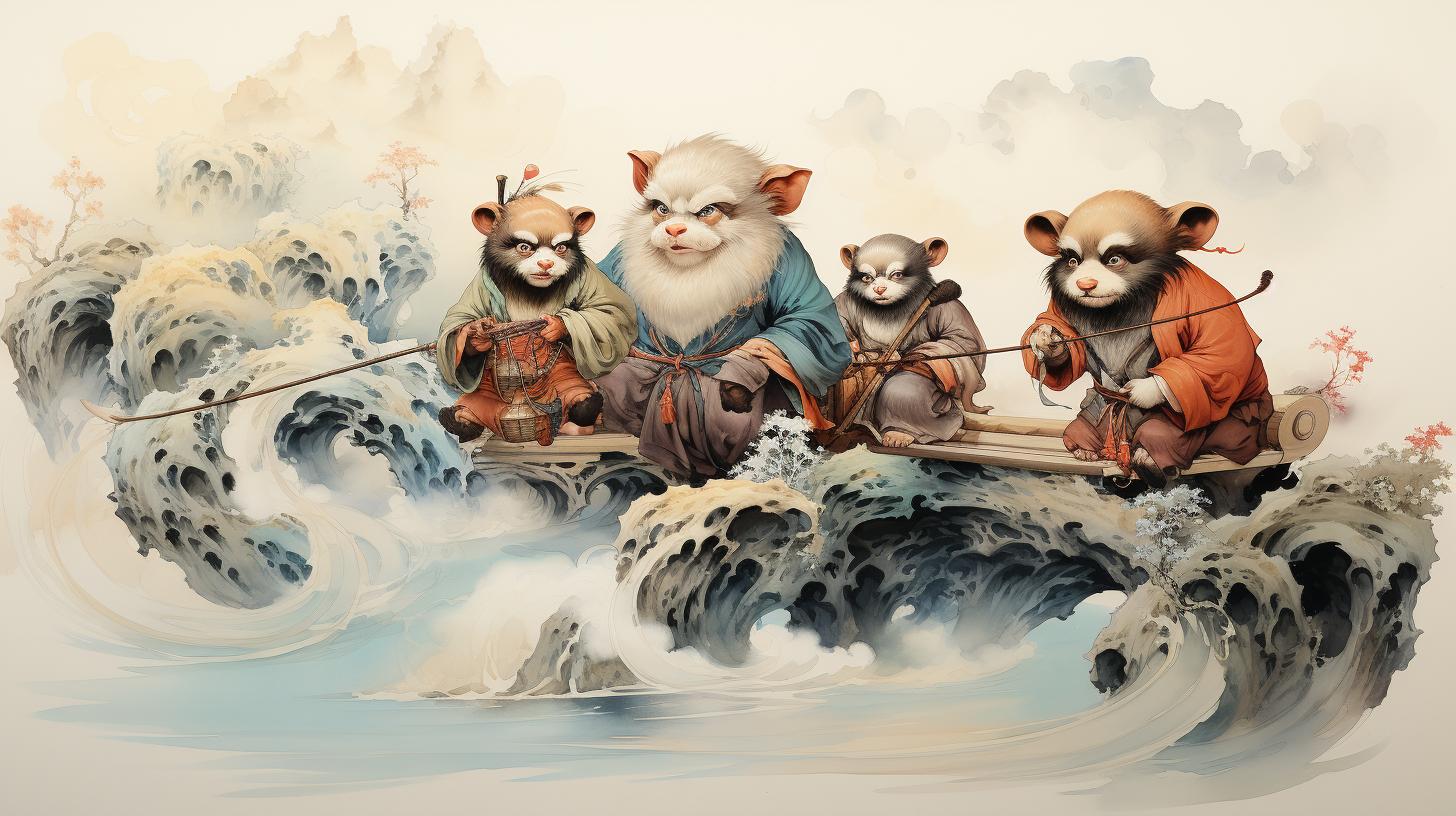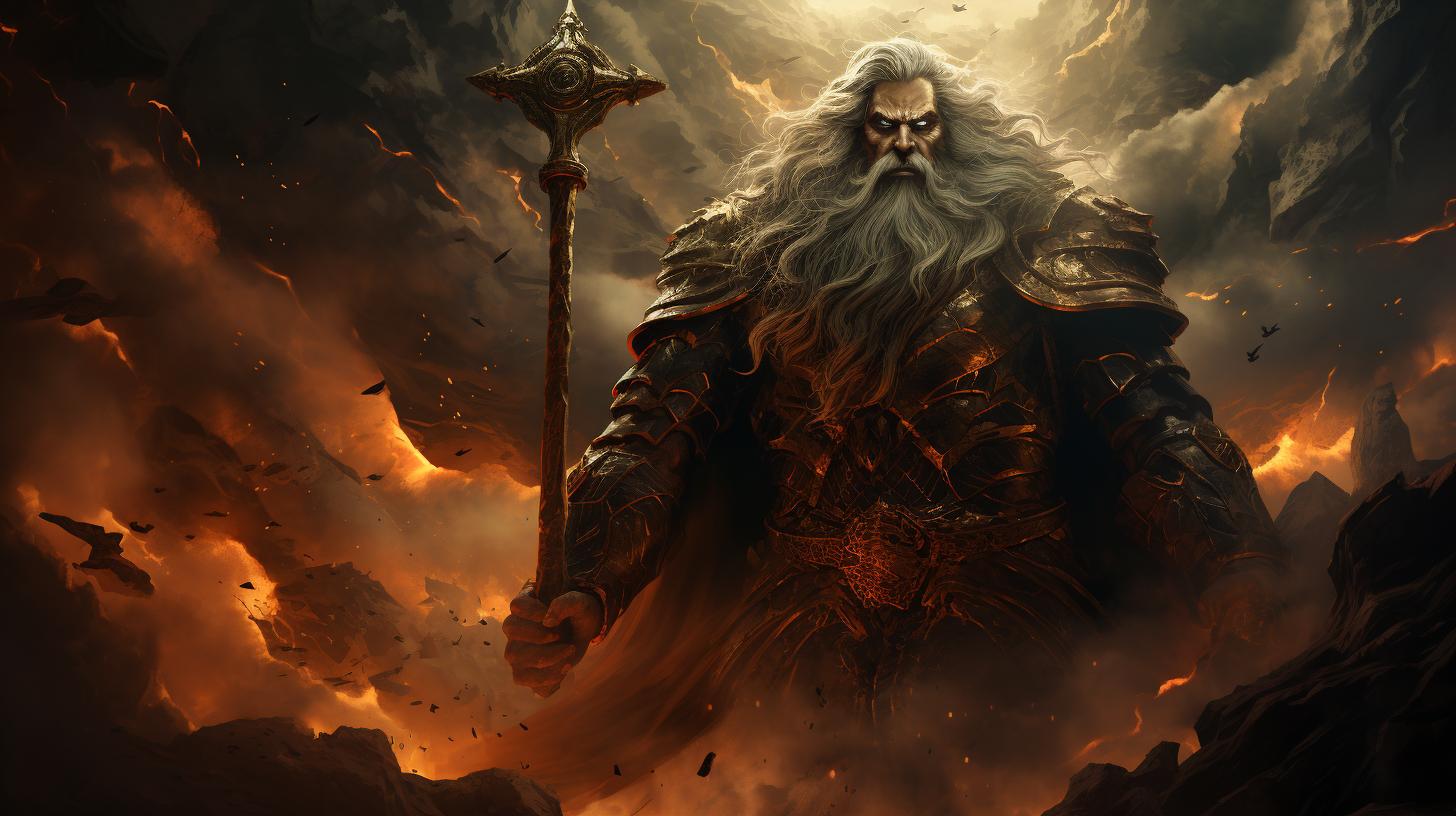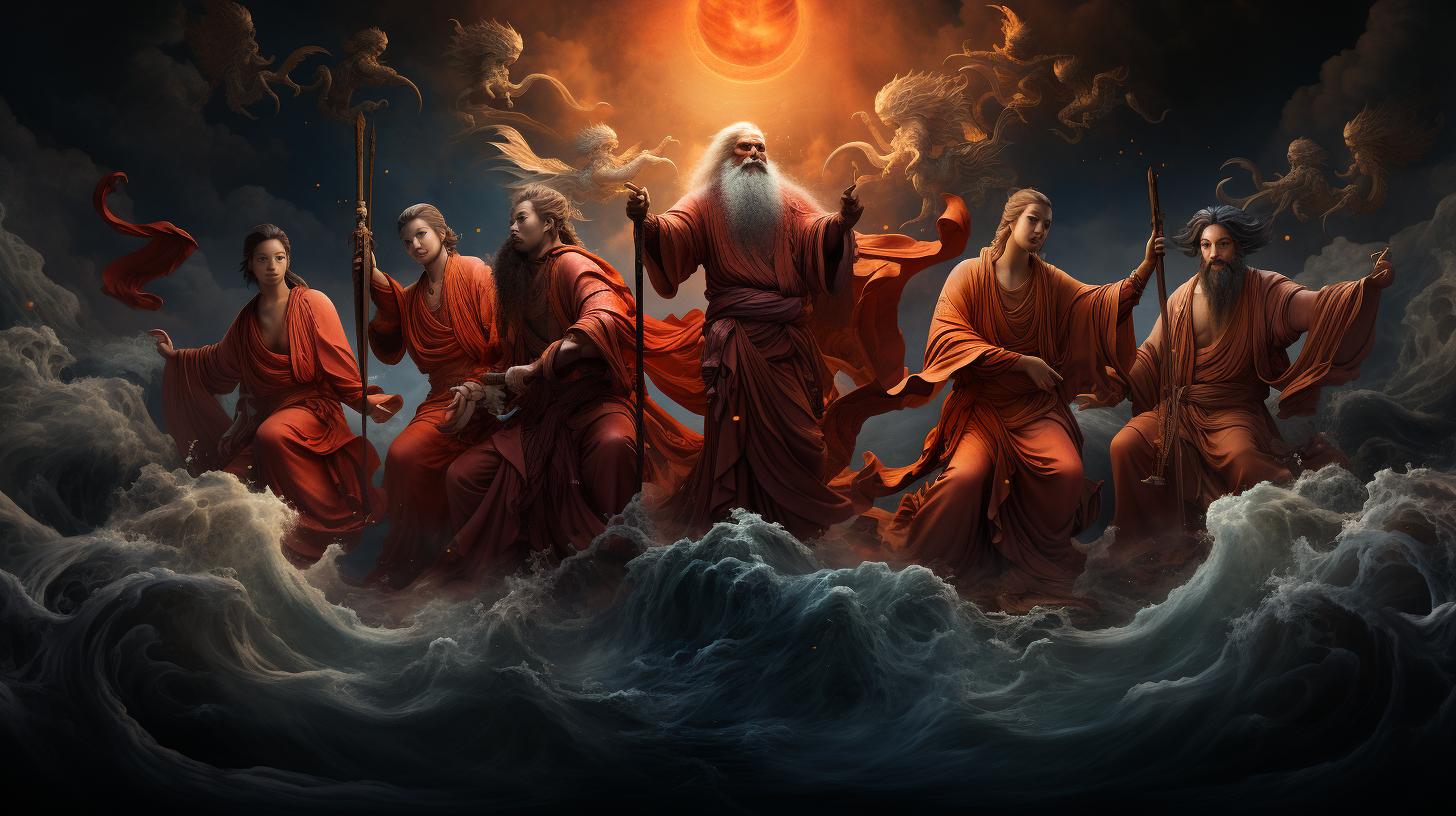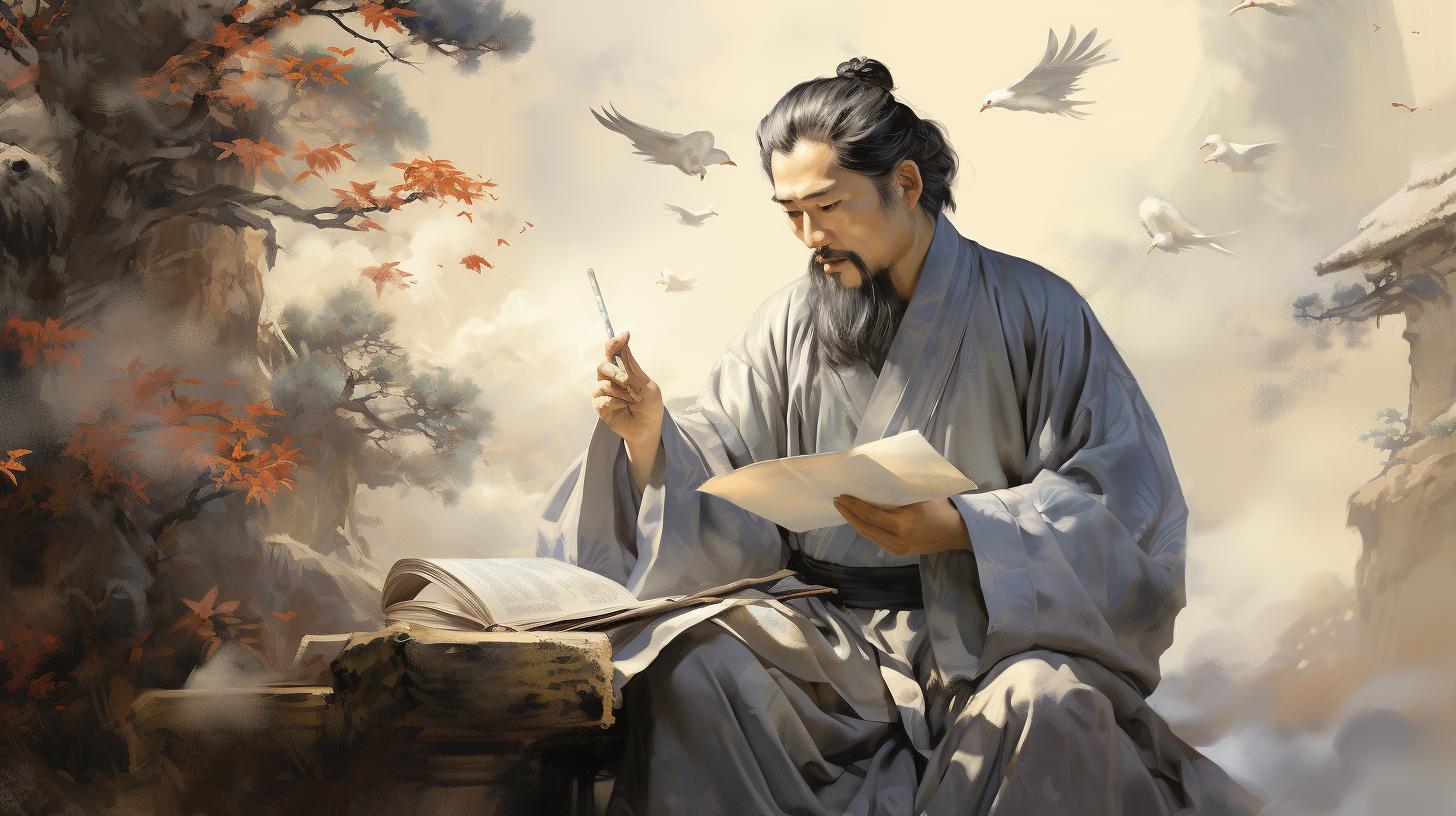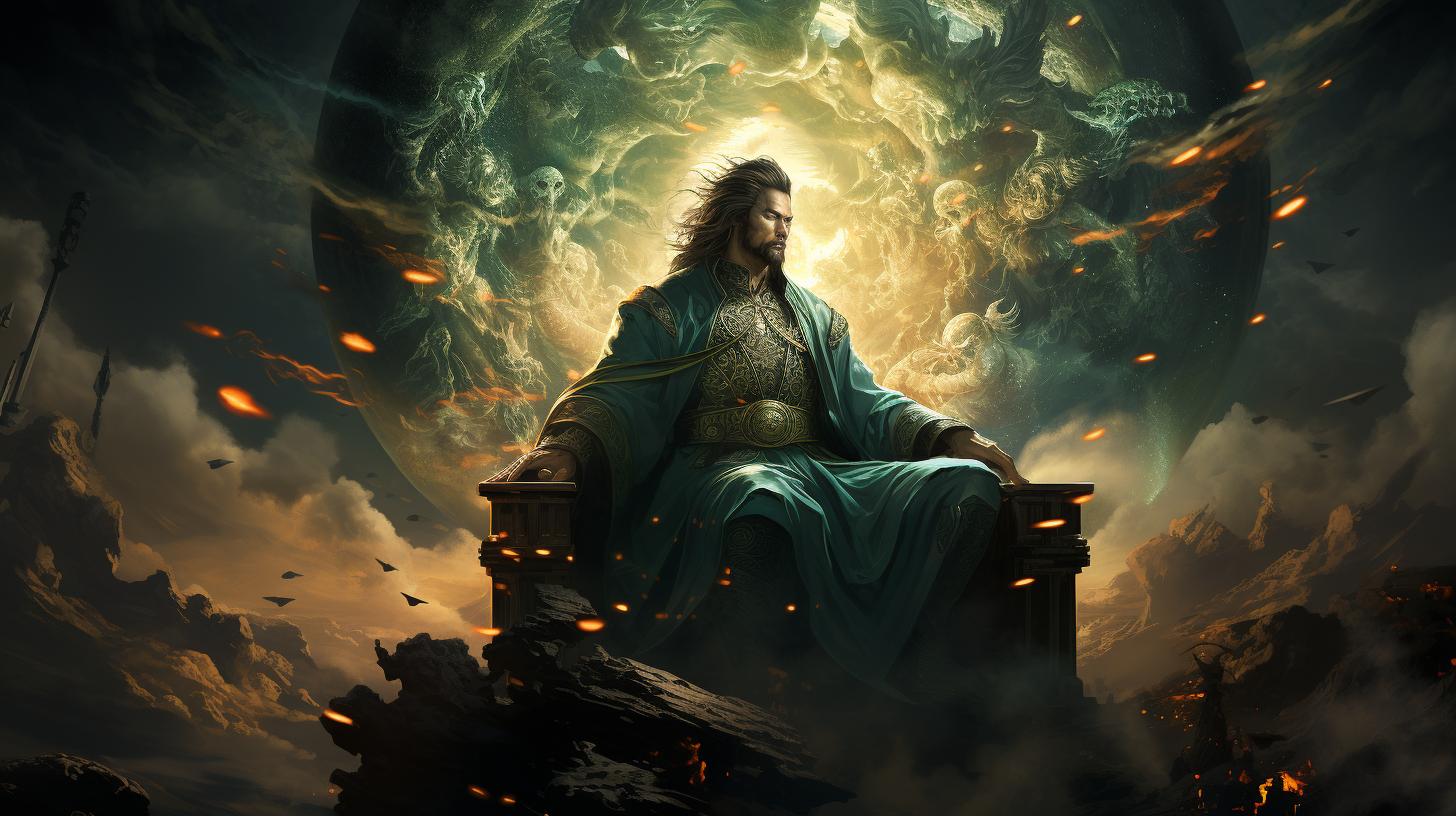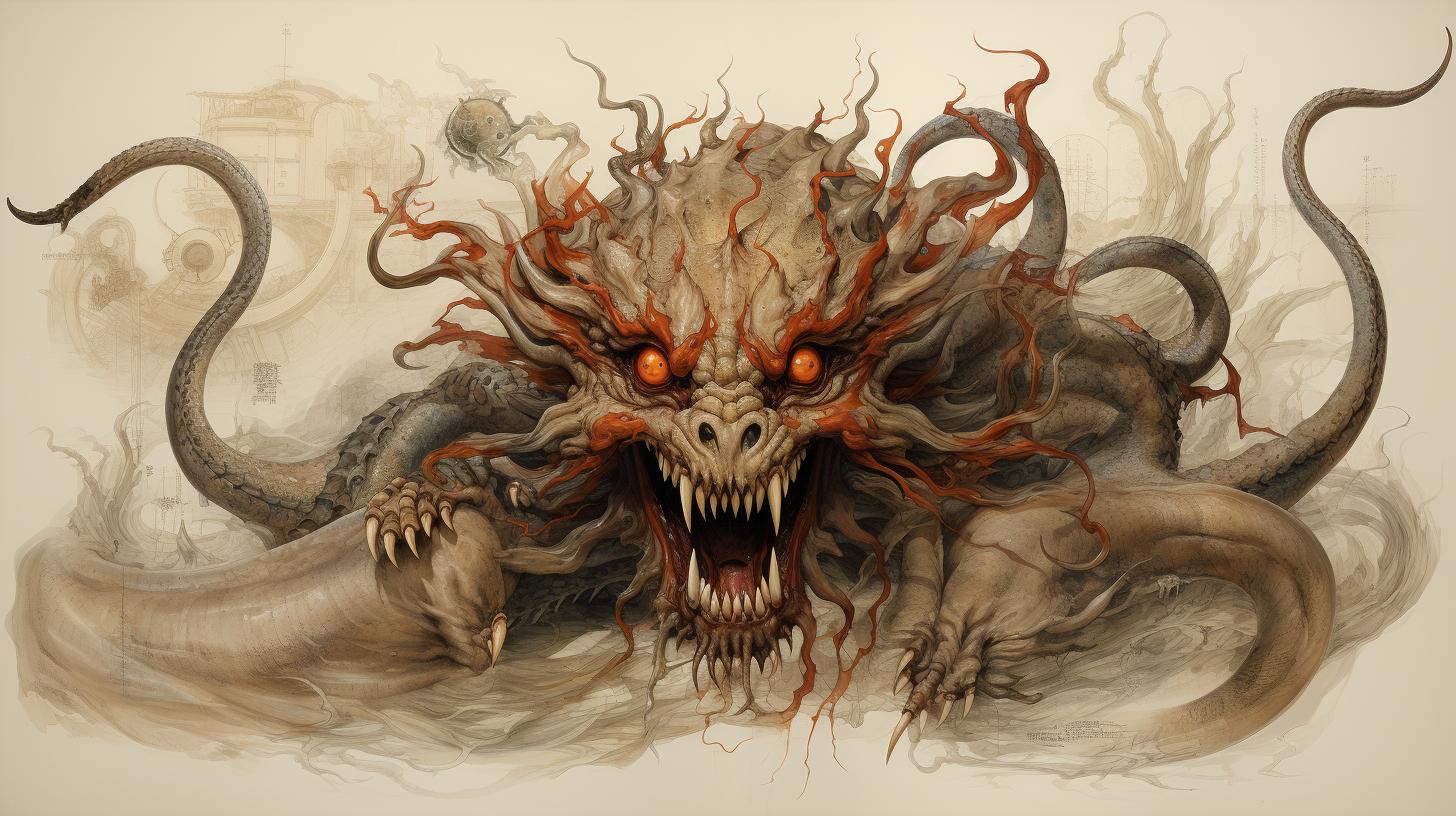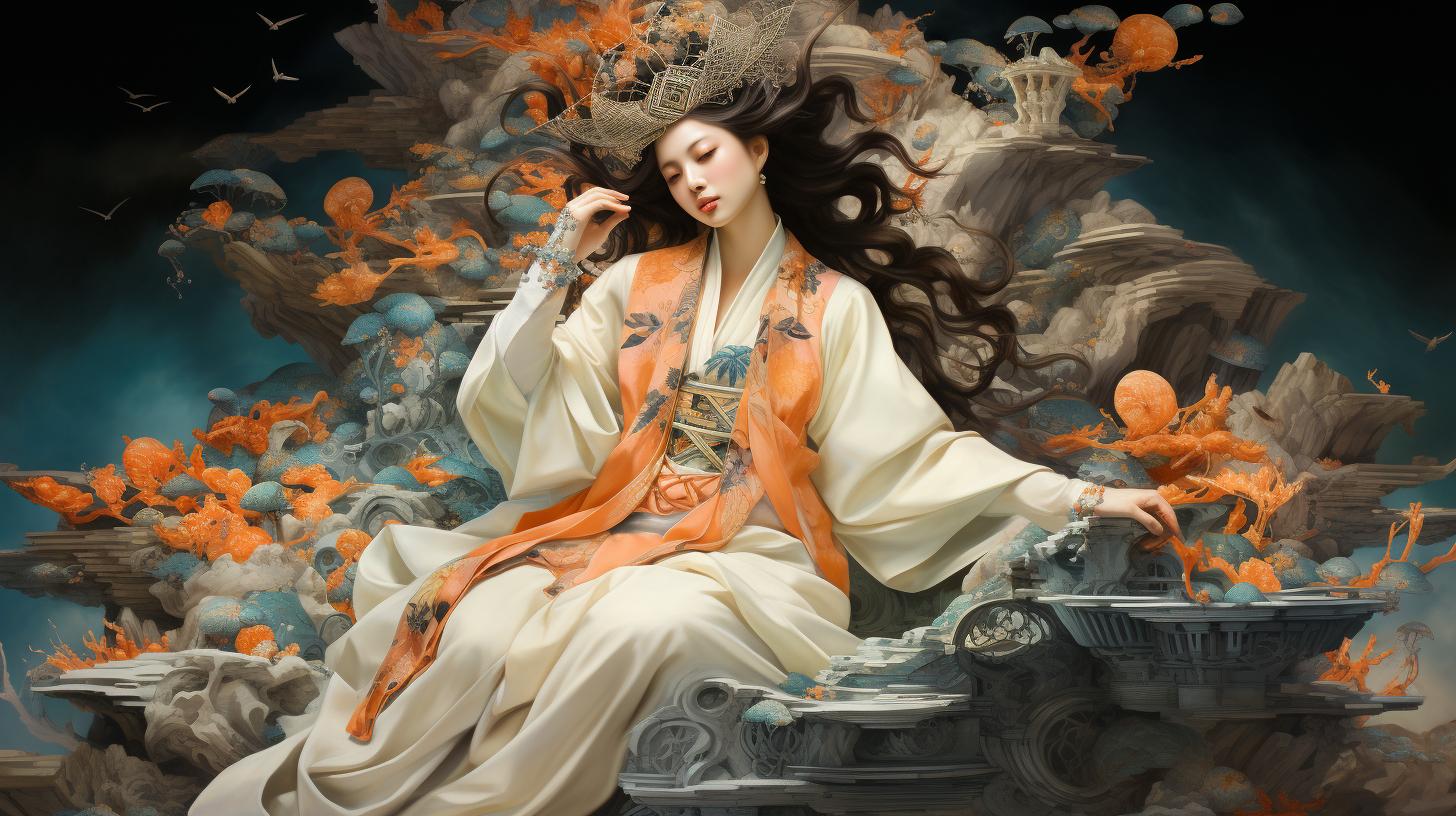Doumu Goddess: Exploring the Divine Power of the Celestial Mother of Ursa Major
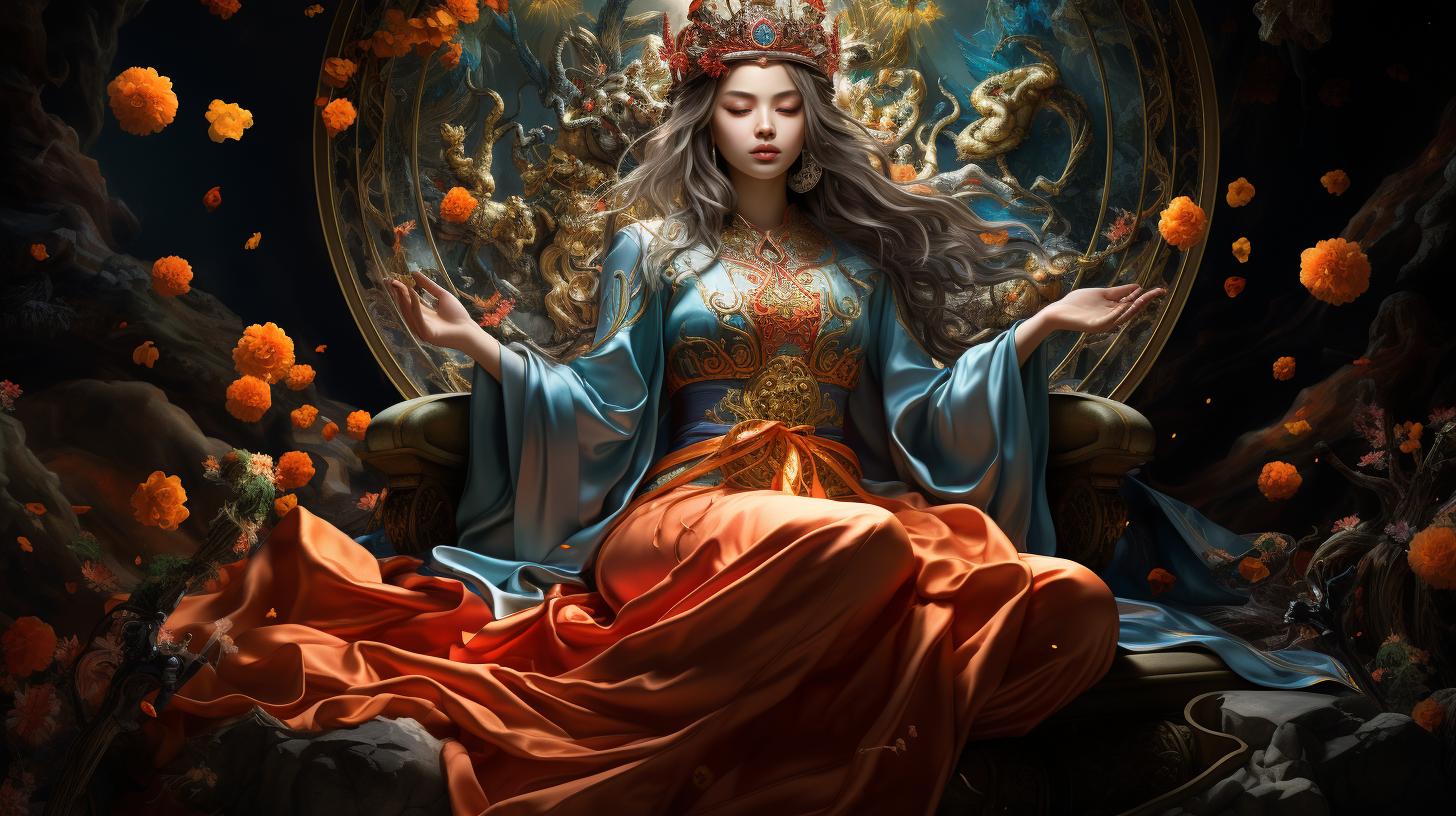
Doumu Goddess is a fundamental deity in Chinese mythology, known as the mother of Ursa Major. Represented with sixteen arms, she is the female counterpart to Tian, the male god of celestial energy.
Doumu plays a crucial role in cosmic creation and balance, embodying the divine forces necessary to maintain order in the universe. As we delve deeper into the mythological connections, symbolism, and cultural significance of Doumu, we uncover the intricate relationship between Doumu and Tian, their representation of Yin and Yang forces, and the various names by which Doumu is known.
Furthermore, we explore Doumu’s presence in contemporary culture, artistic representations, and religious practices associated with this celestial deity.
Doumu Goddess in Chinese Mythology
The Doumu Goddess holds a significant role in Chinese mythology as the revered mother of Ursa Major, the constellation of the Great Bear. She embodies the divine feminine energy and is an essential figure in the cosmology of ancient China.
Doumu’s association with motherhood and nurturing creates a nurturing and protective presence within the celestial realm.
The Role of Doumu as the Mother of Ursa Major
As the Mother of Ursa Major, Doumu is believed to nurture and guide this constellation, symbolizing her role as a maternal figure in the cosmos. Ursa Major holds great importance in Chinese culture, representing the Osa Mayor (Great Bear) and serving as a celestial guide for navigation and timekeeping.
Doumu’s connection to Ursa Major emphasizes her nurturing and protective nature, contributing to the harmony and balance of the universe.
Doumu’s Relationship with Tian, the Male Deity of Heavenly Energy
Doumu is considered the female counterpart to Tian, the male deity representing heavenly energy and creative power. Together, they form a celestial duality that sustains the cosmic order. Doumu’s role as the mother of Ursa Major complements Tian’s creative strength, creating a harmonious balance between the masculine and feminine forces within the cosmos.
This harmonious relationship exemplifies the importance of balance and unity in Chinese mythology and cosmology.
The symbolism surrounding Doumu, the celestial goddess, is rich and captivating. Her depiction prominently features her sixteen arms, each imbued with significance and carrying unique objects. This portrayal represents her divine power and ability to fulfill her cosmic role.
Depiction of Doumu with Sixteen Arms
Doumu is visualized with sixteen arms, symbolizing her immense capabilities and influence. Two of her arms are held in a position of prayer, showcasing her connection to spirituality and devotion.
The remaining fourteen arms elegantly hold various religious objects, each representing different aspects of her divine essence and mystical abilities.
This multi-armed representation reinforces Doumu’s cosmic importance and her ability to carry out her celestial duties.
Objects Held by Doumu’s Fourteen Arms
- Scepter: Represents her authority and dominion over the celestial realm.
- Mirror: Symbolizes introspection, self-reflection, and the ability to perceive hidden truths.
- Lotus Flower: Signifies purity, enlightenment, and spiritual rebirth.
- Sword: Represents her ability to protect and defend cosmic order.
- Scrolls: Symbolize wisdom, knowledge, and the recording of universal truths.
- Joyful Beads: Represent spiritual enlightenment, inner peace, and the ultimate attainment of happiness.
Doumu’s Connection to Xiwangmu, the Guardian of Immortality Peaches
Doumu shares a mystical connection with Xiwangmu, the guardian of the renowned peaches of immortality.
The association between these two powerful goddesses highlights Doumu’s maternal role and her connection to the cycle of life and death. Xiwangmu‘s peaches, said to grant eternal life, represent the everlasting nature of Doumu’s cosmic powers and the knowledge she bestows.
Doumu’s Importance in Cosmic Creation and Balance
Doumu plays a crucial role in maintaining cosmic order, ensuring harmony and balance in the universe. She embodies the essential divine forces necessary for the preservation of universal equilibrium.
Doumu’s Role in Maintaining Cosmic Order
Through her divine influence, Doumu helps prevent chaos and maintain the smooth operation of the universe.
Doumu as a Manifestation of Yin and Yang Forces
Doumu symbolizes the concept of yin and yang, embodying both aspects within herself. She represents the feminine, receptive, and nurturing qualities of Yin, while also embodying the active, creative, and masculine energy of Yang.
Doumu’s existence as a manifestation of these dual forces emphasizes the importance of balance and interconnectedness in cosmic existence.
With her role in preserving cosmic order and her embodiment of yin and yang forces, Doumu acts as a crucial link in the celestial hierarchy, ensuring the smooth functioning of the universe’s divine energies.
Doumu and Tian: Divine Forces of Harmony
In Chinese mythology, Doumu and Tian are viewed as divine forces responsible for maintaining harmony in the universe. They complement each other, embodying the dual cosmic forces of yin and yang.
Together, they play crucial roles in creating and sustaining universal order.
The Complementary Relationship between Doumu and Tian
Doumu, known as the Mother of Ursa Major, represents the compassionate and nurturing aspects of the divine. She balances Tian, the supreme god of creation, who embodies the creative and powerful forces of the cosmos.
While Tian initiates the process of creation, Doumu ensures its harmonious manifestation. Their complementary relationship symbolizes the unity of feminine and masculine energies.
Doumu’s Mercy and Love in Balancing Tian’s Creative Power
As the embodiment of mercy and love, Doumu counterbalances Tian’s immense creative power. She acts as a stabilizing force, preventing any imbalance or chaos in the universe. Doumu’s compassion brings harmony to Tian’s creative actions, ensuring that creation takes place with wisdom and order.
Through their collaboration, Doumu and Tian fulfill their respective roles in upholding the cosmic balance. Their harmonious union represents the interplay between gentleness and strength, nurturing and creating, ultimately fostering the equilibrium necessary for the functioning of the universe.
Doumu’s Various Names and Cultural Significance
Doumu, the celestial goddess of Chinese mythology, is known by different titles that highlight her significant role in cosmology and worship. These titles reflect her multifaceted aspects and cultural significance within Chinese traditions.
Different Titles for Doumu in Chinese Mythology
Doumu is revered by many names, each representing a specific aspect of her divine nature. Some of the prominent titles attributed to her include “Mother of the Osa Major,” “Mother of the Chariot,” “Ancestor of the Chariot,” “Queen of the Sky,” and “Celestial Mother.”
These titles not only honor her role as the mother figure associated with Ursa Major but also emphasize her celestial power and importance in maintaining cosmic balance.
Tianmu District in Taipei: Honoring the Celestial Mother
In Taiwan, the cultural significance of Doumu is commemorated through the Tianmu district in Taipei. This district is named after Doumu, the Celestial Mother. The naming showcases the enduring reverence and cultural significance attributed to her as a deity.
It serves as a reminder of her influence and the continued belief in her mythical role in Chinese cosmology.
Uncovering Doumu: Exploring Mythological Connections
Uncovering Doumu unravels intriguing connections within Chinese mythology, shedding light on the enigmatic role of this celestial deity. Through exploring various mythological threads, we gain insight into the possible involvement of Doumu in the virgin birth of Huangdi, a significant figure in Chinese history and mythology.
Although no specific myths exist, certain legends suggest Doumu’s potential influence in this extraordinary event, adding depth to her character and significance.
Doumu’s Possible Involvement in Huangdi’s Virgin Birth
Doumu’s divine presence hints at a role in Huangdi’s virgin birth, a phenomenon that defies conventional understanding. While details remain elusive, the association between Doumu and this extraordinary event sparks intrigue and invites speculation.
The cosmic forces embodied by Doumu come into focus as we ponder her potential impact on Huangdi’s origin story, further enriching the tapestry of Chinese mythology.
Comparisons and Contrasts with Other Female Deities
By drawing comparisons and contrasts with other female deities, we gain a deeper understanding of Doumu’s unique qualities and her place within the pantheon. While each deity possesses distinct attributes and mythological roles, exploring the similarities and differences allows us to appreciate Doumu’s significance as a cosmic feminine force.
Examining her connections and distinctions with other goddesses enhances our overall understanding of Doumu and her standing in Chinese mythology.
Uncovering Doumu offers a glimpse into the intricate tapestry of Chinese mythology and the enigmatic nature of this celestial goddess. Through exploring potential mythological connections, including Doumu’s possible involvement in Huangdi’s virgin birth and comparisons with other female deities, we deepen our understanding of this divine figure and her importance within the cosmological framework.
Doumu Goddess in Contemporary Culture and Art
The influence of Doumu Goddess extends beyond ancient mythology and continues to resonate in contemporary culture and art. Her captivating persona and symbolic significance have inspired various artistic expressions, literary works, and references in popular media.
Doumu’s References in Literature, Film, and Media
Doumu’s compelling mythology has found its way into numerous literary works, offering a source of inspiration for authors, poets, and writers. Her celestial essence and role as the mother of Ursa Major have been beautifully depicted in poems, novels, and fictional stories.
In the world of cinema, Doumu’s character and symbolism have been featured in films and documentaries exploring Chinese mythology and folklore. Her story, intertwined with cosmic balance and divine power, provides a rich backdrop for visual storytelling and exploration of spiritual themes.
Artistic Representations and Artifacts of Doumu
Art has embraced Doumu’s imagery, creating stunning depictions of her divine presence. Paintings, sculptures, and other forms of visual art capture her sixteen arms, each holding different religious objects, as well as her compassionate aura and harmonizing role in the universe.
Beyond visual representations, artifacts and collectibles inspired by Doumu can be seen in exhibitions and museums. Notably, a mid-17th-century white Chinese porcelain figure depicting Doumu showcases the prominence of her iconography in historical artifacts.
In conclusion, Doumu Goddess’s enchanting presence has transcended time, resonating in contemporary culture through literary works, cinematic portrayals, and captivating artistic representations. This continued exploration of her celestial significance highlights the enduring impact of Doumu and her role as a cosmic deity in Chinese mythology.
Glimpses into the Doumu Worship and Practices
In this section, we delve into the historical and current religious practices associated with the worship of Doumu Goddess. Throughout the centuries, devoted followers have honored Doumu through various rituals and traditions, expressing reverence for her divine presence.
Let’s explore two key aspects of Doumu worship and the sacred sites and temples linked to her worship.
Historical and Current Religious Practices
- Offerings and Devotion: Worshipers present offerings, such as fruits, flowers, and incense, to show their respect and seek blessings from Doumu.
- Ceremonial Rites: Rituals, including prayers, chants, and processions, are performed to invoke Doumu’s divine guidance and protection.
- Temples and Shrines: Dedicated places of worship, adorned with intricate artwork and statues, serve as spiritual centers for Doumu devotees to gather and express their faith.
Sacred Sites and Temples Associated with Doumu
- Mount Tai: Considered a sacred mountain, Mount Tai in Shandong province is believed to be connected to Doumu’s celestial realm.
- Doumu Temple in Beijing: This prominent temple, located in the capital city, serves as a focal point for Doumu worshipers, offering a tranquil space for prayer and reflection.
- Qixia Temple in Nanjing: This ancient Buddhist temple complex features a dedicated hall where Doumu is venerated alongside other deities.
Through these glimpses into Doumu worship and the dedicated sites, we gain an appreciation for the spiritual significance and enduring devotion associated with the worship of the celestial Doumu Goddess.
…

